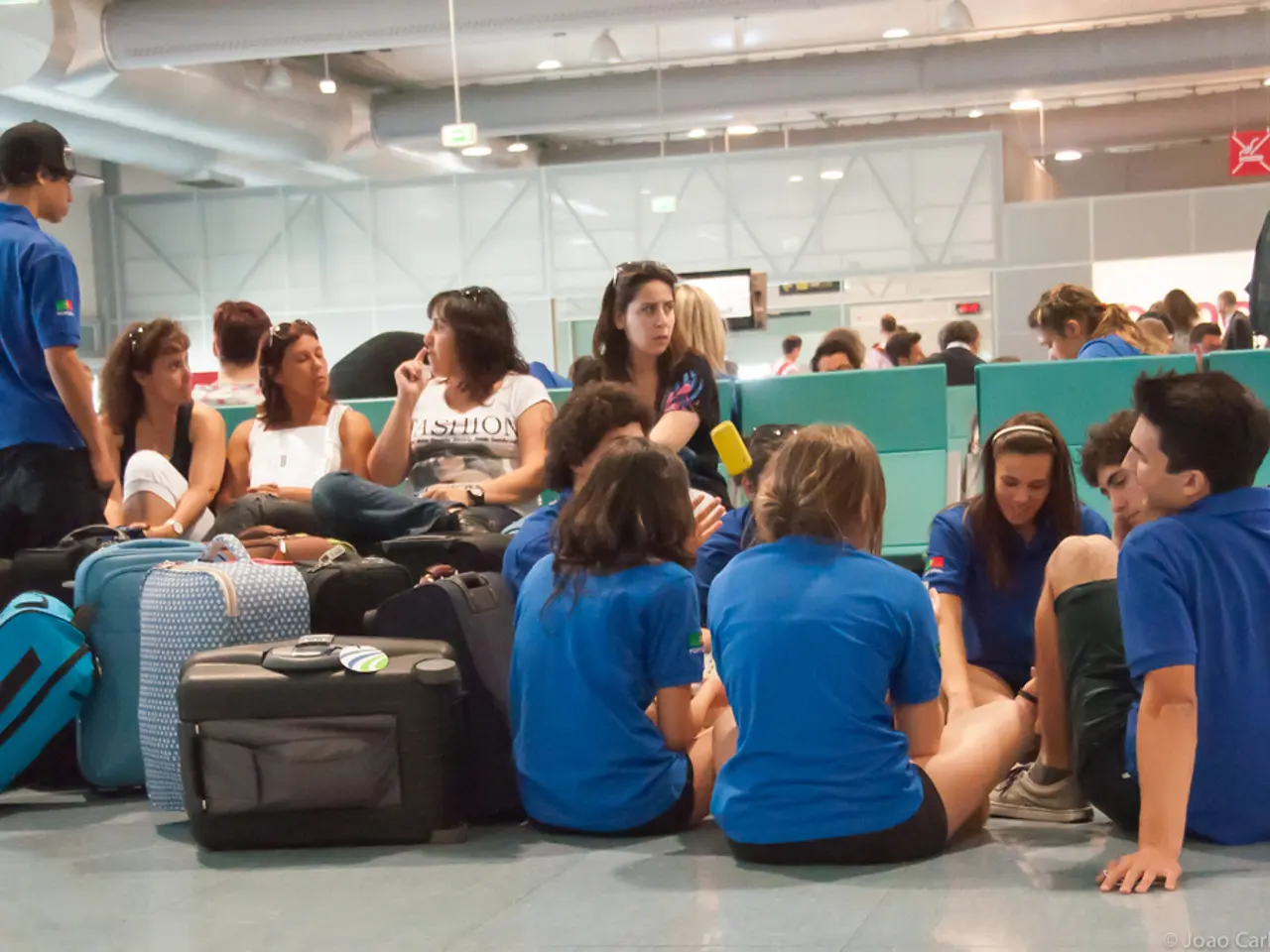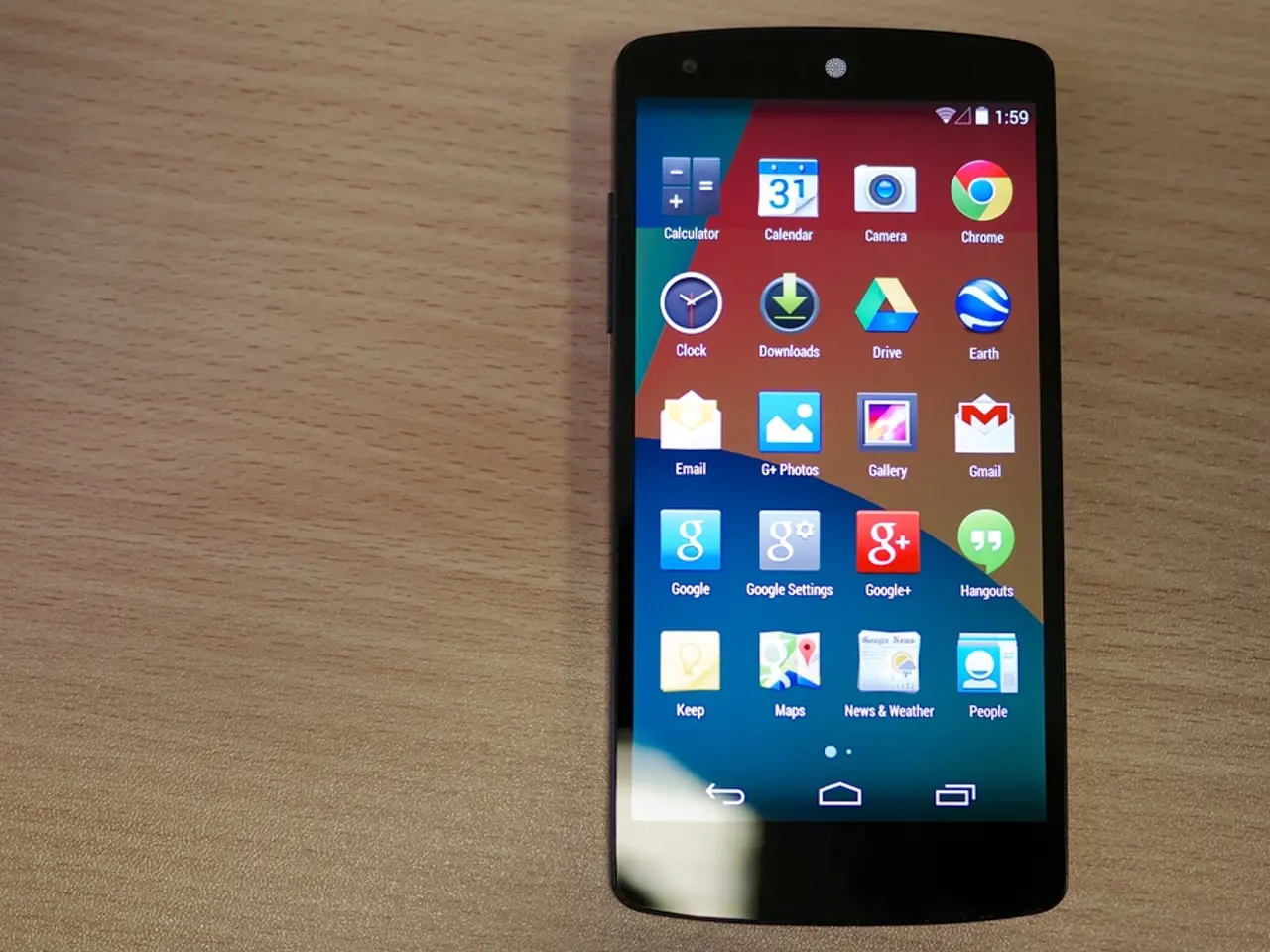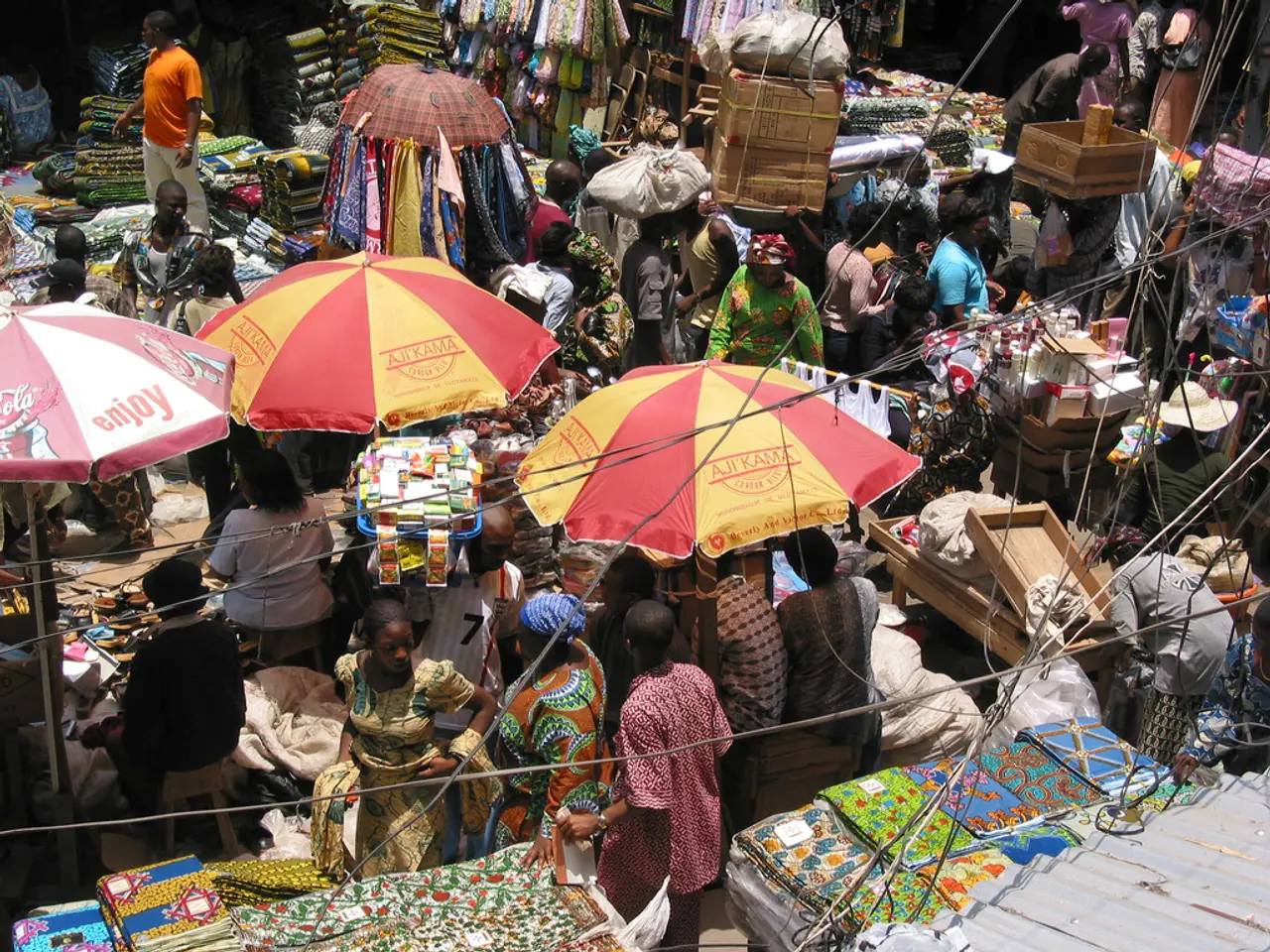Anticipated Launch of Aerial Taxis in Dubai by 2026: Insights into the Coming Transportation Revolution
Dubai is set to revolutionise urban travel with its planned electric flying taxi network, aiming to reduce traffic congestion and travel time between key hubs. The project, scheduled to launch in 2026, will operate using electric vertical takeoff and landing (eVTOL) aircraft, with the first vertiport at Dubai International Airport (DXB) set for completion by early 2026.
Passengers can book flights through a mobile app, similar to existing ride-hailing platforms, with potential integration with the Uber app. The service, if launched, could reshape how residents and tourists move around the city, offering ultra-fast travel times and point-to-point travel over congested parts of the city.
However, the environmental impact of the project is not without controversy. The flying taxis will rely on lithium-ion batteries for power, and lithium extraction for battery production can have significant environmental consequences. These include the use of chemicals that may contaminate water sources and ecosystems, consuming vast amounts of water resources, and leading to deforestation, soil erosion, and habitat destruction.
The upstream environmental cost of lithium mining raises concerns despite the zero-emission operation of the taxis themselves. Similarly, battery manufacturing consumes large volumes of water, especially in lithium extraction processes. This can strain water resources, particularly relevant in arid regions like the Middle East if materials or components are sourced from water-stressed areas.
While the direct deforestation impact in Dubai might be minimal due to urban location and infrastructure reuse, broader supply chain impacts from mining and raw material extraction may contribute indirectly to deforestation in producing countries.
Dubai’s flying taxi initiative emphasises zero in-flight emissions and aligns with broader city efforts to lower carbon footprints. However, independent scrutiny highlights that lifecycle emissions and resource use linked to battery production remain a challenge to be managed.
The estimated cost of a single air taxi trip in Dubai is approximately USD 75, though final fares have not been confirmed. The locations for the vertiports were chosen for their proximity to high-traffic areas and tourist destinations. An initial route will connect Dubai International Airport with Palm Jumeirah, with the trip expected to take approximately 12 minutes.
Over time, the service is expected to expand to include hotel rooftops and major landmarks, offering more direct access between the airport and popular destinations across the city. The project, however, raises important questions about the potential environmental and social impacts of the introduction of air taxis, including noise pollution, energy sustainability, infrastructure development, and equity concerns.
The air taxi service will be developed by California-based Joby Aviation. The manufacturing and disposal of batteries for electric air taxis pose many environmental challenges, making it crucial to address these issues as part of a sustainable urban air mobility strategy.
- The development of Dubai's flying taxi network, while aligning with the city's goal of lowering carbon footprints, poses significant environmental challenges, particularly in relation to battery production for the eVTOL aircraft.
- Lithium extraction for battery production can result in environmental consequences such as chemical contamination, water consumption, and deforestation, raising concerns about the upstream cost of lithium mining, even though the taxis themselves will have zero emissions.
- In addition to the environmental concerns, the introduction of air taxis also raises questions about noise pollution, energy sustainability, infrastructure development, and equity concerns, making it crucial to address these issues as part of a sustainable urban air mobility strategy.




